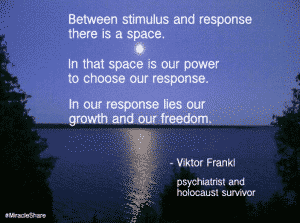This week's expert is Karen Nimmo, a Clinical Psychologist working in Wellington.
========
Mrs D: How do you come into contact with people who have a problem with alcohol?
Karen: I see clients (many of them athletes) for many different issues. Alcohol is just one of them.
Mrs D: Is alcohol misuse often the main problem they face? Or are there often other underlying issues they are battling?
Karen: Alcohol can be the main problem for the athletes I see. Not very often though. Alcohol is almost never the first reason that other clients would book an appointment - it usually takes some time, and some questioning, for them to raise it. People come to a psychologist for all sorts of reasons - depression, anxiety, trauma, body image issues and - perhaps the most common of all - relationship issues, not just with their partner but with families, colleagues, friends and often adolescent children. A lot of the clients I see are high functioning people with families etc who have found that their alcohol use is just a little beyond healthy - and getting worse.
Mrs D: Do you think alcohol ‘gets in the way’ of a person being able to address underlying underlying issues?
Karen: Sometimes. Actually, definitely. Often people are in denial about their use - or the extent of their use. Psychological treatment can be a waste of time if the person continues to drink heavily throughout it.
Mrs D: What sort of impact can heavy alcohol use have on a person’s emotional wellbeing?
Karen: A massive impact. There are clear and evidenced associations between alcohol and depression, mood disorders and anxiety. Conflict is often fuelled or heightened by alcohol. And alcohol makes people do impulsive things, things that they later regret. The consequences of heavy alcohol use on a person’s life are significant. Psychologists will look at the fallout as part of assessment/treatment- on relationships, families, work, safety (e.g. driving, impulsive acts), ability to manage own emotions and live satisfactorily. Sometimes the real damage is seen a generation on. I couldn’t count the number of clients I have seen who have mentioned drinking as a problem for one or other of their parents, their home environment, their own emotional stability.
Mrs D: Often we think the alcohol is helping us deal with stress and negative emotions (I know I did), do you think alcohol helps a person deal with those things?
Karen: Alcohol may help in the moment by easing anxiety, helping you feel more chilled out or socially less inhibited - or by smothering negative thoughts and emotions. That’s really just a smokescreen for all that follows. Anxiety and mood swings (including anger) is often significantly increased in the aftermath of drinking heavily or even consistently. Stuffing your emotions away can have serious implications on your relationships with partners, friends, families and your children.
Mrs D: What sort of approach do you take with an individual?
Karen: The approach depends on how much people are ready to admit to and own their issue with alcohol. So I’d start with a motivational interview to assess where the person is at and what they are hoping to achieve. A motivational interview is simply a style of questioning that allows the psychologist to assess how ready a person is to make change, and also to see what personal characteristics or strengths they have that can be used to help them. Also, to identify any barriers or vulnerabilities that may hold them back.
Mrs D: How can you help someone gain the strength and determination needed to remove alcohol from their lives? How can they help themselves?
Karen: Depends on the person. You model the treatment to the individual - not the other way around. It’s very similar to treating weight loss - you can’t help someone unless they are ready to change. When they are at that stage, it is about building self understanding - so people are aware of their history, reactions, vulnerabilities, triggers. And also their strengths, the things they can call on to help them build a new way of life. There are lots of strategies that you can put in place to assist with their goals. You also have to think about relapse and ways to deal with this. One of the key elements of treatment is helping people build a new identity as a person “who does not drink”. This is vital because without it, people return to what they know - often as soon as they are put under emotional pressure.
Mrs D: What’s the best part of your job?
Karen: Helping people to understand themselves, contributing to someone having a better and more meaningful life. It’s gold.
You can find Karen's website here.





im involved with oranga tamariki and im going to rehab soon. Is there any thing you can help me to get my children back please. Other programmes etc
Hi, I am 28 days sober, people who know me scoff when i tell them i dont drink anymore. I would really like to read and learn more about how to build a new identity as someone who doesnt drink, could you please ask Karen or point me in the right direction. Thank you
Hi @dragonfly76 the community here will be well placed to help you figure that out.. as we’re all working hard to build new identities as non-drinkers.. some have been at it for months.. years even! Are you inside the Members Feed? Talk to others in there they’ll give you plenty of tips and adivce x
This post is just right for me right at this moment! I followed the link to Karen’s website, read another blog post that responded perfectly to issues Im dealing with and now at 5.30 am on a Wednesday I’m feeling empowered! Thanks Mrs D….magic!